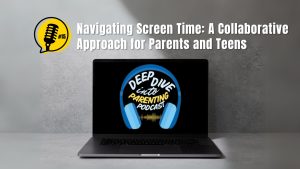Teens share everything. How they feel about life, a new song, their science homework, pictures of themselves, where they'll be hanging out with friends, and doing things they quite possibly shouldn't be. Parents need to be aware of what their children are sharing in their social networks, how it affects their digital reputation, and the long-term consequences.
A report by the Pew Internet and the American Life Project found 91% of the 12-to-17-year-olds it surveyed post photos of themselves and 24% post videos. Another 91% are happy posting their real name, 60% their relationship status, 82% their birthday, 71% the town where they live and the school they attend, 53% their email address and 20% their mobile number (compared with 2% in 2006). More and more, teens are sharing their personal information without any thought of how that information will impact their safety or future. Everything they post, comment on, or like is shaping their digital reputation. Digital reputation doesn't happen by accident. It is shaped by your online behavior and the content that you post about yourself and others. You don't have to look far to see famous individuals that have turned their lives upside down because of a regrettable post or image. Professional sports athletes have lost million dollar endorsements, politicians have been forced from office, and even an average Joe's Tweet can go viral, making them a national pariah.
One of the most infamous examples of this is 30-year-old Justine Saccos’ tweets she made during her journey from New York to South Africa. She was the senior director of corporate communications at IAC. During her layover at Heathrow Airport, she tweeted: “Going to Africa. Hope I don’t get AIDS. Just kidding. I’m white!” She had only 170 Twitter followers at the time. During her 11-hour flight, Justine’s tweet went viral. By the time she landed she became the No. 1 worldwide trend on Twitter. The twitter-sphere became her judge, jury, and executioner:
“In light of @Justine-Sacco disgusting racist tweet, I’m donating to @care today”
“How did @JustineSacco get a PR job?! Her level of racist ignorance belongs on Fox News. #AIDS can affect anyone!”
“I’m an IAC employee and I don’t want @JustineSacco doing any communications on our behalf ever again. Ever.”
“All I want for Christmas is to see @JustineSacco’s face when her plane lands and she checks her inbox/voicemail”
“Oh man, @JustineSacco is going to have the most painful phone-turning-on moment ever when her plane lands”
“We are about to watch this @JustineSacco bitch get fired. In REAL time. Before she even KNOWS she’s getting fired.”
Her employer, IAC, the corporate owner of The Daily Beast, OKCupid and Vimeo tweeted: “This is an outrageous, offensive comment. Employee in question currently unreachable on an intl flight.” A Twitter user summed up the inescapable truth: “Sorry @JustineSacco, your tweet lives on forever.”
Justine was fired from her dream job and and in recent interview said she is still battling the backlash of her public shaming that occurred two years ago. A google search of Justine’s name will return thousands of articles about her. Her tweet will indeed live on forever.
A 2014 survey by Kaplan Test Prep of 400 college admissions officers shows that 35% say they look at candidates' online profiles on social networking sites to learn more about them. However, just 16% discovered something negative through their search, compared to 30% who reported they did last year. It appears that teens are getting the message but these numbers will offer no comfort if your child is one of the 16% who were denied acceptance to their school of choice.
I encourage parents, when they give their child access to social media, to help direct them towards a goal of creating a positive digital reputation. The added benefit of doing this is finding a positive outlet for your child's creativity, community service, or entrepreneurial interests. A student in my neighborhood regularly uses social media to organize clothes or toy donations for the emergency foster care center. Every few weeks she posts pictures of the items that people have dropped off and then reports how grateful the children and staff were at the foster center. She is building a positive digital reputation while championing her personal cause.
Keys to Shaping a Positive Digital Reputation
1. Be selective of what you publish online.
You should only publish information you are completely comfortable with others seeing. I tell students, before you hit the send button ask yourself: ""If I put this post or image on the side of a bus and drove it around the city with my name on it, would I be embarrassed?"" If the answer is yes, then don't send it. Look for opportunities to publish information that will lead to a reputation that you and your parents can be proud of. Stay away from using words, symbols, or images of violence, guns, weapons of any kind, alcohol, drugs, pornographic or suggestive material, inappropriate language, and derogatory or racist comments.
2. It is permanent.
Once you publish something on the Internet, it doesn't belong to you anymore. It can be copied, reposted elsewhere, and used for some unintended purpose. It is true, you can delete posts on social media sites, but often before this can be done, others have screen-shot your post, saving it on their device to be posted later.
3. Privacy is an illusion.
A private post or message is never truly private. There are always ways to get around the privacy setting on your social networking site. This includes social media apps that claim to delete your content after the recipient reads it. I have personally investigated many incidents where the sender believed their communication was private and secure, and it was not. Only post items that you would not mind your family, friends, or the police seeing.
4. Manage your digital reputation.
Periodically perform online searches of your name and nickname and see what comes up. Don't just use one search engine, but a variety of them. If you find unflattering photos of yourself, delete them, or ask the person who posted it to remove it. Your friends might be tagging you in images and posts that you might have nothing to do with. Monitor how other people are using your name.
"






